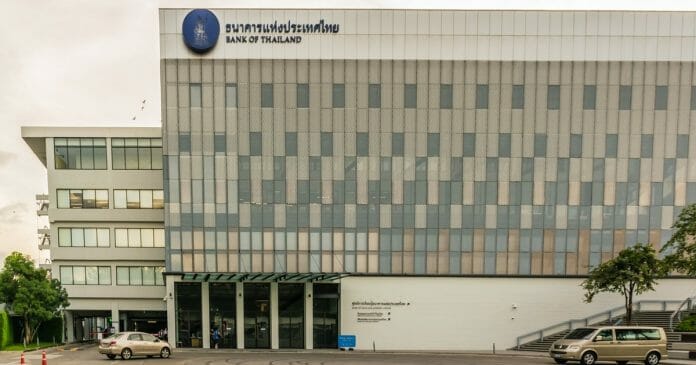Thailand’s central bank delivered a widely expected hike in its key interest rate on Wednesday, adding 25 basis points in a sixth consecutive meeting to curb inflation risks as the economy gathers strength against rising global uncertainties.
The Bank of Thailand’s (BOT) monetary policy committee voted unanimously to raise the one-day repurchase rate to 2.00 per cent, as 17 of 22 economists polled by Reuters had expected.
With Wednesday’s move, the BOT has raised its key rate by a total of 150 basis points since August.
The recovery in Southeast Asia’s second-largest economy continues to gain traction, the BOT said in a statement, and GDP may expand more than expected, with exports, a key economic driver, set to improve.
The central bank maintained its economic growth forecasts at 3.6 per cent this year and 3.8 per cent next year.
“Inflationary risks stem from greater demand pressures amid expanding economic activity and higher cost pass-through from supply pressures,” it said, adding that inflation should continue to decline at a gradual pace.
Headline inflation was seen at 2.5 per cent this year, compared with 2.9 per cent in March, it said on Wednesday, while maintaining its earlier forecast of 2.4 per cent for 2024.
In April, headline inflation dropped to a 16-month low of 2.67 per cent, inside the BOT’s target range of 1 per cent to 3 per cent.
The Thai economy expanded faster than expected in the first quarter helped by recovering tourism, and the return of Chinese tourists following the country’s reopening.
The BOT expects foreign arrivals of 29 million this year and 35.5 million next year, slightly above its forecasts in March.
Pre-pandemic 2019 saw a record of nearly 40 million foreign tourist arrivals who spent 1.91 trillion baht ($56.43 billion).
But growth and investment flows may be crimped by political uncertainty that lies ahead over the formation of a new government after the opposition secured a stunning election victory this month.
“Investment, in particular, likely will be missing in action this quarter and next, at least, with businesses remaining on the sidelines until the still-fragile transition in government is complete,” said Miguel Chanco of Pantheon Macroeconomics.
The BOT’s next monetary policy review is on Aug 2.









